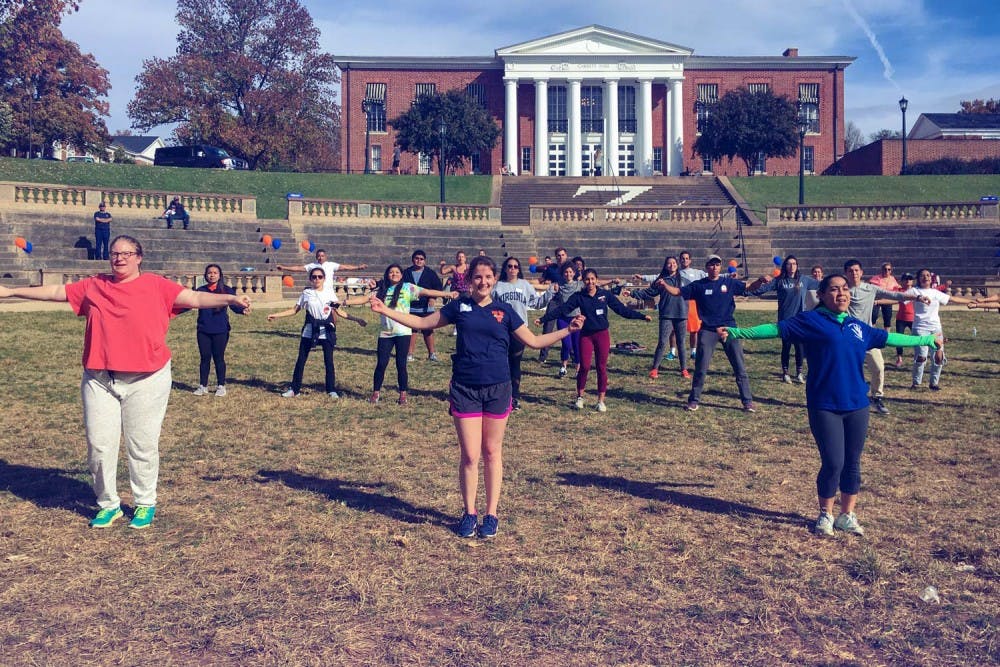Affordable health care in the United States is hard to come by for many people, especially those in low-income areas. Assoc. Prof. of Medicine Dr. Max Luna took note of this problem and, alongside faculty and medical personnel, created the Latino Health Initiative, a program designed to bring affordable health care to the Latino community in Charlottesville.
The LHI originated from the UVA-Guatemala Initiative, a program where medical students and undergraduates traveled to Guatemala to gain a deep cultural and linguistic experience, as well as to contribute to the health of the indigenous communities. Luna wanted to give students and faculty who travelled a chance to apply their knowledge here in Virginia, giving rise to the Latino Health Initiative.
The program is divided into four major parts — each led by a different group of faculty, students and healthcare workers.
The first part takes place at the Church of the Incarnation, which has a parrish of over 500 Latino people. Every other Sunday, a wide variety of health-related services are offered including blood pressure assessments, risk assessments and health education presentations. With a registration of 350 people and over 700 visits, the Cardiovascular Initiative for Latino Community Help remains a huge success.
The next program, entitled Companeros and Training Empowerment Program, partners with Promotores de Salud, an organization composed of health workers. The goal of this program is to train Latinos to be advocates in their communities and to seek those who need health advice or need to be directed to care.
In an effort to help Latinos become more comfortable with receiving health care, every month the Charlottesville Free Clinic hosts La Clinica Latina night, an event where all of the volunteer students and physicians speak Spanish while seeing patients to try to bridge the cultural gap between patient and doctor.
“That is what we, as physicians, should nurture — our relationship with patients and communities, so they feel close to us and not an office visit where it is cold and rushed,” Luna said. “That is what I feel we have accomplished.”
In addition, the clinic offers housing, medicine and access to high-quality health care. With the number of patients and visitations on the rise, La Clinica Latina serves as a bridge to link the hispanic community to affordable health care. Janet Arras, a medical student and LHI student leader, believes that this clinic will do more than that.
“We get feedback about La Clinica Latina like, ‘Wow, I feel like people are really listening!’ and I think that is going to help bridge some cultural barriers between the Latino community and the U.Va. health system,” Arras said.
The final part of the program, named Tarde de Salud Familiar, will benefit the Southwood community, a low-income community with a significant Latino population. It will be a monthly service held at their community center where there will be health education sessions led by health workers and medical personnel similar to those held at the Church of the Incarnation.
The LHI has primarily been advertised by the Promotores in the communities by word of mouth. By hearing about this organization from a member of their community, other members of the Latino community will be more inclined to listen.
“If patients can go with someone they can culturally relate to, they’re more likely to follow prescription regimen,” said Arras. “We can provide support to them, and we’re getting closer to get them the healthcare they need. We want to create a community of trust.”
The Latino Health Initiative has just begun, and it has already been recognized by the University at the Bicentennial this past October. To celebrate, the LHI hosted Baileton, a Zumba event for the Latino community to celebrate Latino culture together with the University.
“As a faculty member, it gives the sense that if I can harness that passion and the love that people have for others and I can provide some learning opportunity, it’s a win-win situation,” Luna said. “For the students, for me and the community — that is what I enjoy most from the Latino Health Initiative.”
This program would not have been possible without the combined effort of University faculty, students and community health workers. They will continue to bridge the gap between healthcare and the Latino community.
“The goal of the LHI is to connect this health system to the Latino community, so they understand that it’s something … for them, that it serves them and that it’s doing everything it can to make them feel welcome and supported here in Charlottesville,” said Emily Schutzenhofer, a medical student and LHI student leader.







